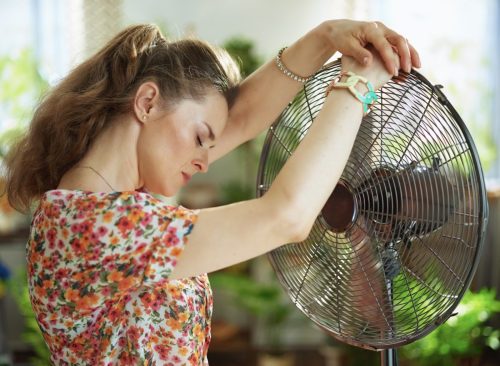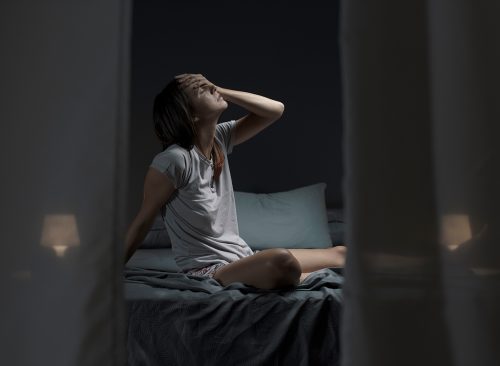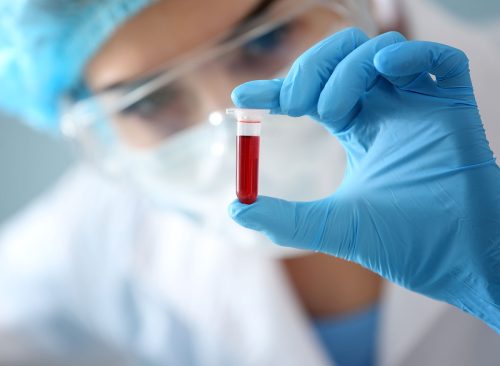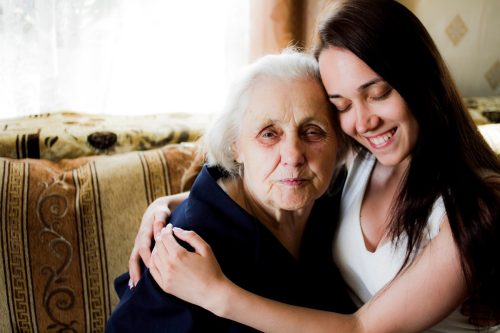Hidden Dangers of Hot Flashes, New Research Reveals
You may develop two serious health conditions, researchers claim.

According to research, around 80 percent of women experience hot flashes during menopause, a “sudden feeling of warmth in the upper body, which is usually most intense over the face, neck and chest,” as explained by the Mayo Clinic. “Your skin might redden, as if you’re blushing. A hot flash can also cause sweating. If you lose too much body heat, you might feel chilled afterward. Night sweats are hot flashes that happen at night, and they may disrupt your sleep,” they say. While hot flashes clearly sound uncomfortable, new research claims there are actually hidden dangers that come with them.

Last week researchers presented unpublished studies at The Menopause Society’s annual meeting in Philadelphia, finding that intense hot flashes linked to an increase in C-reactive protein, which is a marker of future heart disease, and to a blood biomarker that could predict a later diagnosis of Alzheimer’s disease.

“This is the first time science has shown hot flashes are linked to blood biomarkers of Alzheimer’s disease,” Dr. Stephanie Faubion, director of the Mayo Clinic’s Women’s Health Specialty Clinic in Jacksonville, Florida, and medical director for The Menopause Society, says.

“This is another piece of evidence telling us that hot flashes and night sweats may not be as benign as we have thought them to be in the past,” added Faubion, who was not involved in the studies.

Researchers enlisted almost 250 women aged 45 to 67 who were experiencing menopausal symptoms. They had them wear a device for three nights, measuring their quality of sleep. They also wore sweat monitors to record their hot flashes on one of the nights. They also had blood drawn to look for a specific protein biomarker of Alzheimer’s disease called beta-amyloid 42/40.

“Beta-amyloid 42/40 is considered a marker of amyloid plaques in the brain, which is one of the components of the pathophysiology of Alzheimer’s disease dementia,” lead study author Dr. Rebecca Thurston said. “We found night sweats were associated with adverse beta-amyloid 42/40 profiles, indicating that hot flashes experienced during sleep may be a marker of women at risk of Alzheimer’s dementia.”

While the biomarker does not identify whether a person has clinical Alzheimer’s disease, it can identify the possibility of developing the disease in the future. “In other words, hot flashes at night aren’t causing this risk. They’re just a marker of people who are at increased risk,” Faubion said. “Similarly, we don’t know if treating night sweats would diminish the risk. We don’t know that.”

They were able to rule out poor sleep. “All of the findings are converging to underscore there’s something about these nocturnal vasomotor symptoms, aside from sleep itself, that is affecting the brain,” she said.

Another study by Thurston’s research team was also presented, this one having to do with heart disease. Researchers examined inflammatory markers for heart disease, placing sweat monitors on 276 women who were part of the MSHeart study to measure the frequency and intensity of hot flashes more objectively during day and night. “A lot of people actually underreport their hot flashes, saying they’re not having many when they really are,” Faubion said. “Using this monitor is an objective way to quantify them.”

Results found that hot flashes during the day were associated with higher levels of C-reactive protein. “This is the first study to examine physiologically measured hot flashes in relation to inflammation and adds evidence to a growing body of literature suggesting that hot flashes may signify underlying vascular risk,” lead author Mary Carson, a clinical and bio-health doctoral student in the department of psychology at the University of Pittsburgh, said in a statement.

Faubion maintains that doctors should ask patients about their hot flash experiences in hopes of predicting future disease. “Women who may be having night sweats in particular may need to assess their cardiovascular risk in general,” she said. “As for what to do, the recommendations are going to be the same as for heart and brain health: better sleep, proper diet, regular exercise program, reducing stress, staying socially connected and doing something that stimulates your brain.”














